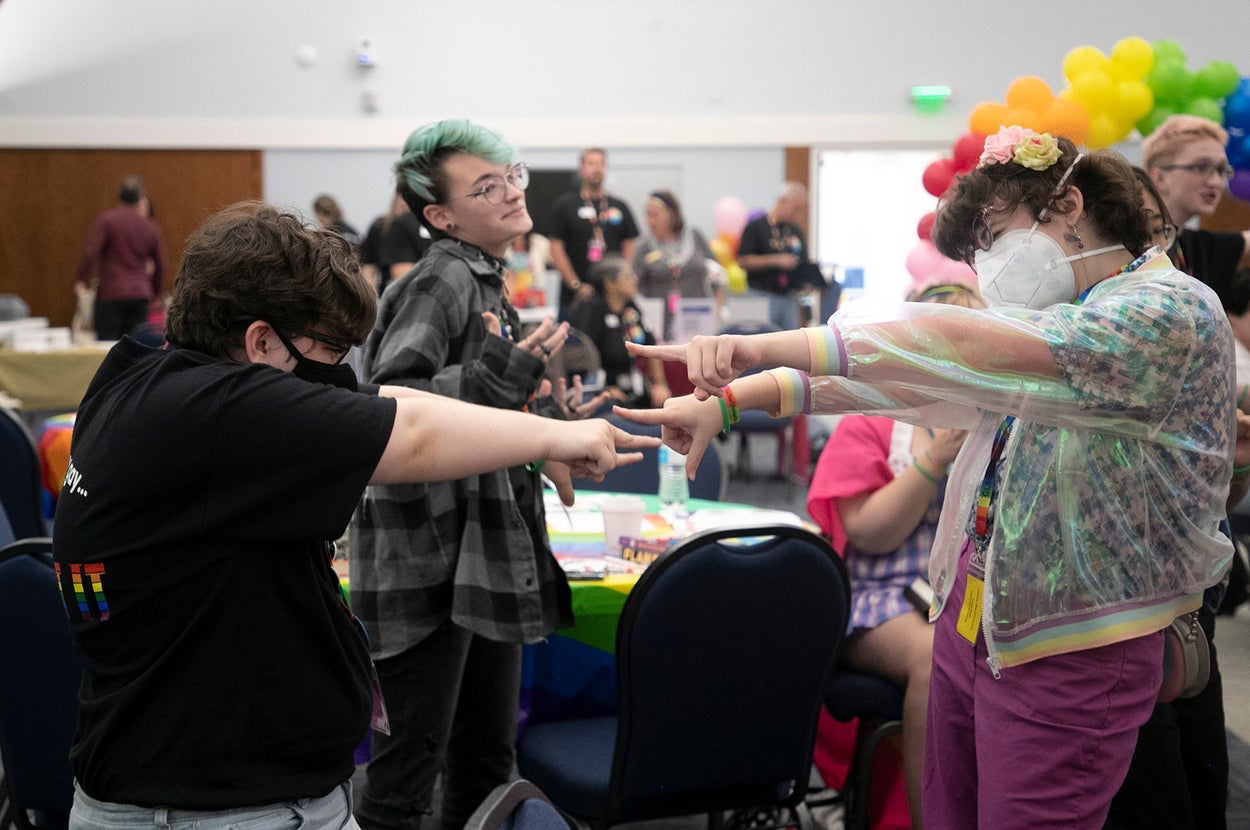In recent years, Florida has experienced a significant shift in its educational policies, particularly as they affect LGBTQ rights. The trajectory was markedly changed with the passage of the Parental Rights in Education Act in March of the previous year. Commonly referred to by its critics as the “Don’t Say Gay” law, this piece of legislation places severe restrictions on classroom discussions centered around sexual orientation or gender identity for children up to the third grade. Moreover, it limits these discussions across all school grades by stipulating they must be “age appropriate or developmentally appropriate for students.”
However, the scope of the law doesn’t stop at young children. Its impact is widespread, sending a chill across classrooms in Florida, with educators becoming increasingly wary of crossing the vague boundaries set by the law. This wariness has led to the removal of rainbow decorations and hesitance in addressing topics that could be construed as related to LGBTQ issues. Teachers with same-gender spouses feel pressured to hide their personal lives, fearing potential repercussions. Florida Governor Ron DeSantis has only intensified these fears by indicating an expansion of the law to cover students from grades 4 to 12.
The chilling effect of such legislation is manifold, sparking a broader crackdown on what can be discussed or available within the school environment. Following the controversial law’s footing, another legislation empowered Florida residents to challenge classroom and library materials. Conservative groups have leveraged this to argue for the removal of numerous books that explore LGBTQ themes or racial issues, leading to cases where bookshelves are physically covered up, obscuring the books as they await a decision on their acceptability.
The torrent of restrictive measures sees its most dire consequences in the treatment of transgender and nonbinary students. Florida saw a significant law passed in 2021 that bans transgender girls (assigned female at birth) from participating in female sports teams. In 2023, the state expanded its legislative assaults by banning gender-affirming medical care for transgender minors. This specific regulation prompted Kayak, a 17-year-old transmasc nonbinary student, to hurriedly begin hormone replacement therapy before the law could cut off their access to it.
According to a survey conducted by The Trevor Project in 2022, these legislative actions have cast a long and oppressive shadow over LGBTQ youth in Florida. The findings are stark: 45% of Florida’s LGBTQ young people had seriously contemplated suicide in the previous year, and 16% had attempted it. These figures are even higher among transgender and nonbinary youths, with 54% considering suicide and 20% attempting it. The report by The Trevor Project highlights that the heightened risk of suicide among LGBTQ youth isn’t due to their sexual orientation or gender identity per se but is instead linked to the discrimination and stigma they face, a situation exacerbated by recent political measures.
The potential for these laws to inflict harm is evident, and Kayak’s fears are symptomatic of a broader anxiety among LGBTQ youth. Transitioning from a queer child to an adult in such an environment, Kayak expresses the shift from being viewed as a victim to being demonized as a “groomer” or a villain simply because of their identity.
The political landscape continues to be hostile, with 10 additional bills identified by the ACLU as harmful to LGBTQ individuals still pending in Florida’s legislature. These include a bill that restricts bathroom access based on biological sex and another that broadly mandates all transgender youth to detransition. If passed, the latter could lead to state intervention in cases where parents seek gender-affirming care for their children outside Florida.
Amidst this backdrop, the significance of spreading information about gender-affirming care becomes even more critical. At a recent conference held by GLSEN, an organization focused on advocating for LGBTQ students in schools, discussions on gender-affirming care were emphasized. Mishya Nishioka, the director of gender-affirming hormone therapy services at Planned Parenthood of Southwest and Central Florida, addressed the attendees on hormone therapy options, fertility preservation, and the process of updating gender identity on legal documents.
These talks have the potential to be more than just educational; they could be life-saving for some attendees. The urgency and necessity of providing reliable, supportive information in an increasingly hostile environment cannot be overstated, reflecting a beacon of hope and defiance against a tide of repression. As Shaw, the director of the GLSEN chapter, succinctly put it, these presentations could indeed mean the difference between life and death for some of the kids keenly searching for guidance and validation in an often unaccepting world.









